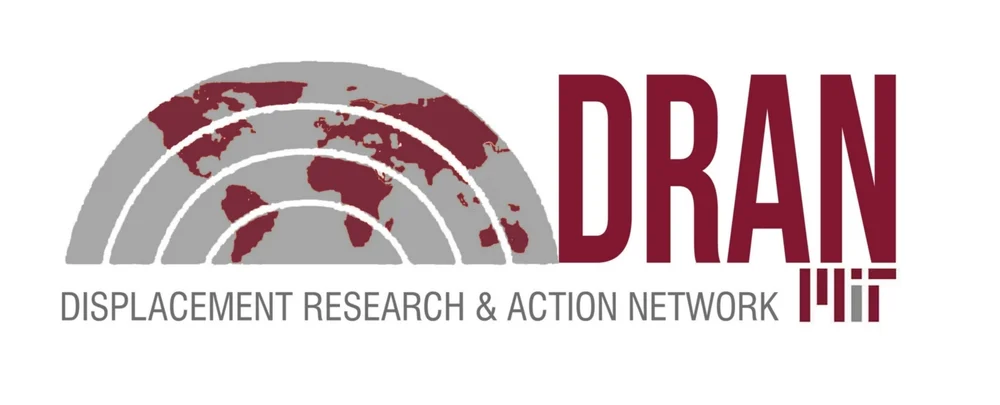DISPLACEMENT-FOCUSED COURSES
Affiliated faculty have taught a variety of courses through DRAN that have provided students with a holistic understanding of displacement:
Planning Against Evictions and Displacement (recurring)
Combines state-of-the-art research on evictions and displacement globally (in the context of the global crisis of evictions, land grabbing, and gentrification) with the study of policy and practical responses to displacement, assisted by selected case studies. First half covers explanations about the mechanisms and drivers of displacement, while the second half introduces and evaluates policy and legal responses developed by many actors. Analyzes the use of UN and national standards on displacement as well as the use of tools such as the Eviction Impact Assessment Tool.
Human Rights at Home and Abroad (recurring)
Provides a rigorous and critical introduction to the history, foundation, structure, and operation of the human rights movement. Focuses on key ideas, actors, methods and sources, and critically evaluates the field. Addresses current debates in human rights, including the relationship with security, democracy, development and globalization, urbanization, equality (in housing and other economic and social rights; women's rights; ethnic, religious and racial discrimination; and policing/conflict), post-conflict rebuilding and transitional justice, and technology in human rights activism.
Property and Land Use Law for Planners (recurring)
Examines legal and institutional arrangements for the establishment, transfer, and control over property under American and selected comparative systems including India and South Africa. Focuses on key issues of property and land use law regarding planning and economic development. Emphasizes efficient resource use; institutional, entitlement and social relational approaches to property; distributional and other social aspects; and the relationship between property, culture, and democracy.
Malaysia Sustainable Cities Practicum (2015; 2017)
Field-based practicum for students that worked under the close supervision of DUSP faculty and faculty at the Universiti of Teknologi of Malaysia (UTM) to assess the sustainable development efforts of regional development agencies in Penang, Kuala Lumpur or Johor Bahru.
Responding to Displacement: Strategies, Methods, Tools, and Outcomes (fall 2015)
Explored, using a case study and practical application methods, different strategies and tools that are being employed around the world to respond to the growing phenomenon of displacement and evictions in the context of rapid development and urbanization. The class used illustrations of impact assessment tools, mapping strategies, case law, policy responses and mobilization methods being employed by independent institutions, the United Nations, civil society, academics from various disciplines and government bodies.
Housing and Land Rights for Planners (fall 2014)
The course began with a rigorous and critical introduction to the history, foundation, structure, and operation of the human rights movement. While the course began with an introduction to the full range of international human rights, the primary focus was on the critical connection of housing and land rights to the ethical dimensions of planning and the role of planners in tackling the current global crisis of urbanization and urban and rural poverty.
India: Urban Displacement and Resettlement (Fall 2014)
Students worked in Delhi (and Mumbai and Chennai), India, in selected jhugi-jhopri (slum) communities (called JJ clusters in Indian government’s parlance), reviewed and assessed the conditions of communities slated for resettlement or evictions and the conditions of resettlement sites, conducted data mapping and visualization to get a better understanding of the impact of displacement on affected populations, and enabled an improvement of the capacity for advocacy on the part of HLRN.
Law, Social Movements, and Public Policy (spring 2014)
Studied the interaction between law, courts, and social movements in shaping domestic and global public policy. Examined how groups mobilize to use law to affect change and why they succeed and fail. Used case studies to explore the interplay between law, social movements, and public policy in current areas such as gender, race, labor, trade, environment, and human rights. Introduced the theories of public policy, social movements, law and society, and transnational studies.
Urbanization and International Development (Spring 2014)
This course undertook a detailed examination of global urbanization in the context of international development. It introduced the historical context for urban growth in the developing world, examining in particular colonial policies towards urban settlements and urbanization. The course then turned towards the challenge of defining international development, a task undertaken in part through a critical examination of key debates in development theory. The majority of the course concentrated on the latter two sections. In these, it presented and evaluated the key policy frameworks and theoretical paradigms through which the challenges facing contemporary urban settlements in the developing world are addressed and understood. It then focused on an in-depth analysis of the principal substantive challenges facing developing world cities, ranging from rural-urban migration and the rapid growth of informal settlements to conflict and entrenched poverty.
